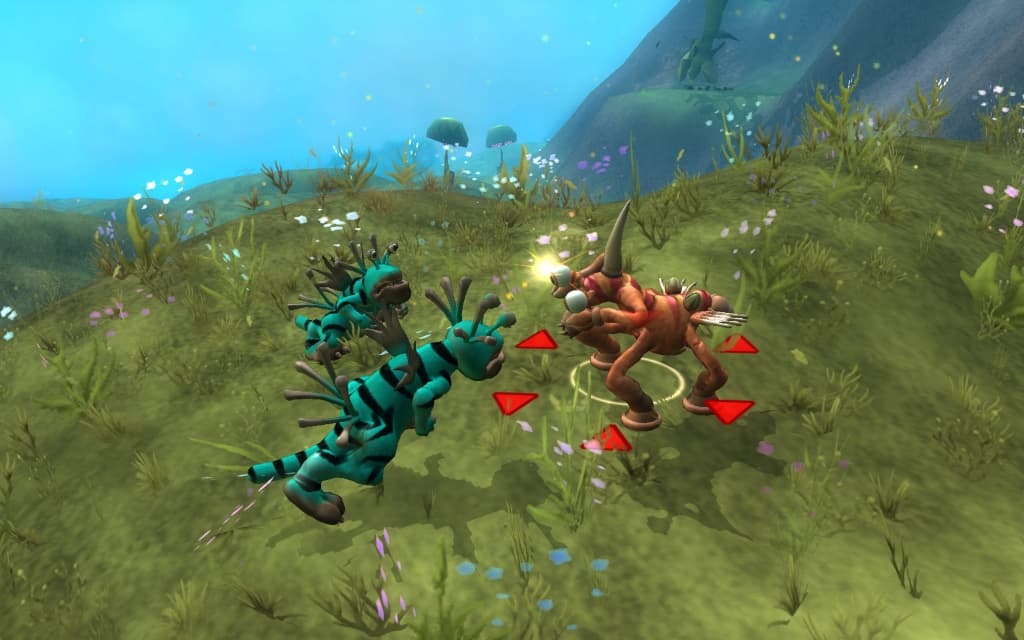

Not enough game designers have the stones or the vision to try the same, which is why we get battered with endless versions of Madden NFL (also put out by Electronic Arts). Wright abstracts grandiose topics, and he does it well. Provoking wonderment or debate is a good thing. Ultimately, games are made to engage the people who play them. “When we put the players in the role of intelligent designer then people were much more emotionally attached to what they made,” he says. An early prototype of Spore included mutations, but Wright said it wasn’t engaging-users needed to make those tweaks. What people see as agendas in Spore and The Sims and SimCity may merely be artifacts of what’s required to turn a simulation into a game. How would you play it? Perhaps you’d just end up watching a lab computer churning data. It’s important to remember that building a game based strictly on evolutionary principles would be a disaster. That’s maybe not so realistic, but it is enjoyable. The final stage of Spore has you scooting around in a spaceship, exploring a universe populated with user-created content. But he takes pains to point out that it’s a caricature of reality, like all his games. He admits Spore is a game that deals with intelligent design. I can’t imagine that it’s going to make evangelicals too happy, either. This element of the game has angered atheists. When I eventually founded a city, I flooded the planet with religious propaganda to forcibly convert the unwashed heathens beyond my walls. I managed to go religious by doing exactly what the religious nuts in America do not: eating lots of veggies and playing nice with my neighbors. You form a tribe, then evolve into a civilization with a military, economic, or religious culture. Once the evolution stages end, Spore morphs into a traditional and less-innovative strategy game. In Darwin’s world, I would have been a snack for a more efficient predator. At one point, my creature’s legs and arms were connected by useless and mechanically impossible minilimbs. If you don’t bless your beast with a mouth or hands, you won’t fare well. And natural selection plays only a minor role. Despite some overenthusiastic prognostications in reviews-” Spore could be the greatest gaming tool ever created to disseminate Darwinistic ideas,” says one critic-the game makes no room for random mutation, the real source of differentiation. His conclusion: “Spore is a video game that is intelligently designed to allow users to create fantasy worlds where evolution really can take place.” (If a game that lets you play god is intelligently designed, does that make Will Wright some kind of deity? Could he be Auðumbla, the icy cow of Norse legend that spawned the first gods by licking hoar frost?)īut the science in the game is wafer thin. … I know of at least two video-game developers affiliated with this who are pro-I.D.” Luskin wouldn’t tell me who those developers were, but he did recently weigh in on the Discovery Institute’s blog to list five reasons why Spore will destroy common objections to intelligent design. “It raises a lot of the questions we’ve been thinking about,” Casey Luskin of the Intelligent Design Evolution and Awareness Center told me three months ago. groups have already targeted Spore as a possible educational vehicle.

As the deity in this god game, your choices influence the game’s outcome. But it’s also where some people may see a divine hand. As you progress, you earn “DNA points,” opening up palettes of biological tweaks.

The decisions you make from the start-whether to eat meat or plants or both, for example-set the course for your early development. You start as a cell, swimming around in a nutrient swamp, gobbling nourishment. In Spore, players guide life through five different stages. By taking on evolution-and, by default, intelligent design-Spore wades into a roiling ecosystem. His new game, however, traffics in subjects most universities have multiple Ph.D. Wright has a knack for turning complex stuff into easily digestible entertainment. And then there was The Sims, the best-selling computer game franchise of all time, a virtual dollhouse that let you control the daily activities of cyberhumans. In the early 1990s, he released SimEarth and SimLife, precursors to Spore that covered similar ontological ground, putting the user in charge of developing life and planets. Transforming a blob of protozoa into a flock of Yuri Gagarins feels like a duty reserved for the almighty or, perhaps, epochal time. Play long enough, and you’ll evolve into an entire spacefaring society. Wright’s latest endeavor, Spore, tackles nothing less than life itself. Two decades later, he’s moved on to a grander project. Wright’s first hit, SimCity, released in 1989, set out to model the complexities of urban planning. Game designer Will Wright has never been one for half measures.


 0 kommentar(er)
0 kommentar(er)
